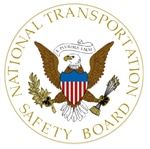Dear members of SMART Transportation Division:
Your help is needed to get the word out to certain members of Congress who want to take pension money from our Sheet Metal brothers and sisters and other union workers covered by multi-employer pension plans.
A decade ago, in the midst of the Great Recession, SMART and other multi-employer pension plans had the foresight to take steps to make sure they could meet their necessary obligations even during a period of financial collapse. These steps involved sacrifice on the part of these plan participants and resulted in solvent and stable pension plans able to meet their obligations for years to come.
However, there is a minority of pension plans covering about 1 million participants that did not make these changes, and these pensions could run out of money in the future. In addition, the Pension Benefit Guarantee Corporation (PBGC), which serves as a safety net for financially troubled pensions, is having money troubles of its own. It could be insolvent within a decade.
To address these shortfalls, Congress has convened a Joint Select Committee to consider ways to resolve the potential insolvencies. But the draft plan being considered by this Congressional committee could punish healthy and solvent pensions, like the one covering SMART members, for the sake of solving the financial shortfalls of the failing pensions and the PBGC.
Politicians need to know that this plan is not acceptable, and we ask that you make it clear that another solution, one that does not take money away from solvent plans, must be found.
Our SMART brothers and sisters need our help, please call. You also can text PENSION to 21233 and to be connected directly to your congressional office. Message and data rates apply for that service.
Members of the Joint Select Committee:
- Congressman Vern Buchanan – Florida 16th 202-225-5015
- Congresswoman Virginia Foxx – North Carolina 5th 202-225-2071
- Congressman Phil Roe – Tennessee 1st 202-225-6356
- Congressman David Schweikert – Arizona 6th 202-225-2190
- Congresswoman Debbie Dingell – Michigan 12th 202-225-4071
- Congressman Richard E. Neal – Massachusetts 1st 202-225-5601
- Congressman Donald Norcross – New Jersey 1st 202-225-6501
- Congressman Bobby Scott – Virginia 3rd 202-225-8351
- Senator Orrin Hatch – Utah (Co-Chair) 202-224-5251
- Senator Lamar Alexander – Tennessee 202-224-4494
- Senator Michael Crapo – Idaho 202-224-6142
- Senator Rob Portman – Ohio 202-224-3353
- Senator Sherrod Brown – Ohio (Co-Chair) 202-224-2315
- Senator Heidi Heitkamp – North Dakota 202-224-2043
- Senator Joe Manchin – West Virginia 202-224-3954
- Senator Tina Smith – Minnesota 202-224-5641
A suggested script for your call to Congress:
My name is ___________ and I am a member of SMART Transportation Division Local ____. My union brothers and sisters in the International Association of Sheet Metal, Air, Rail and Transportation Workers participate in a multi-employer defined benefit pension fund.
I am calling today to voice my strong opposition to the current proposal of the Joint Select Committee. This proposal attempts to infuse money into the broken PBGC on the backs of healthy pension plans and forces the funding status of well-performing funds to go backward.
My union does not endorse this proposal, nor do I. We expect any friend of labor to stand with us on this position.


 The lifetime maximum benefit for the Railroad Employees National Early Retirement Major Medical Benefit (ERMA or GA-46000) Plan will increase from $162,500 to $166,400 beginning Jan. 1, 2019.
The lifetime maximum benefit for the Railroad Employees National Early Retirement Major Medical Benefit (ERMA or GA-46000) Plan will increase from $162,500 to $166,400 beginning Jan. 1, 2019. The National Transportation Safety Board (NTSB) has released a preliminary report on the Oct. 4 collision of two Union Pacific (UP) trains in Granite Canyon, Wyo., that killed SMART Transportation Division Local 446 members Jason Vincent Martinez, 40, and Benjamin “Benji” George Brozovich, 39.
The National Transportation Safety Board (NTSB) has released a preliminary report on the Oct. 4 collision of two Union Pacific (UP) trains in Granite Canyon, Wyo., that killed SMART Transportation Division Local 446 members Jason Vincent Martinez, 40, and Benjamin “Benji” George Brozovich, 39. With your vote comes the chance to shape where the future of the transportation industry will go by selecting those candidates who support issues, such as two-person crews, the safety of our bus operators and yardmaster legislation, that are important to us.
With your vote comes the chance to shape where the future of the transportation industry will go by selecting those candidates who support issues, such as two-person crews, the safety of our bus operators and yardmaster legislation, that are important to us.